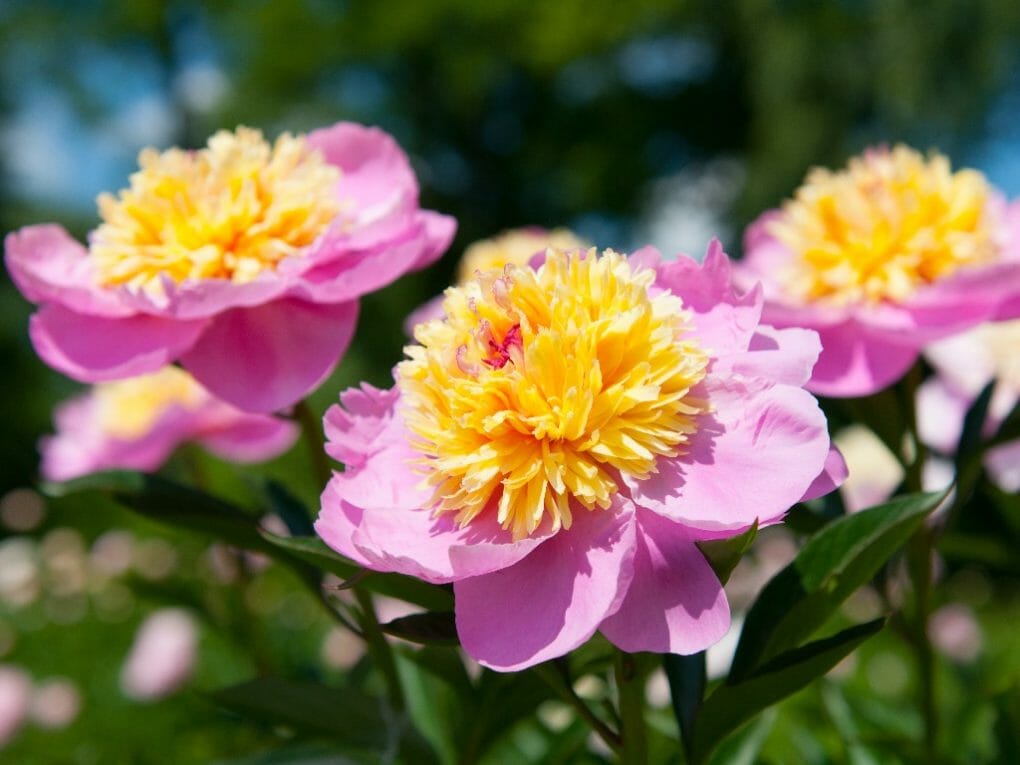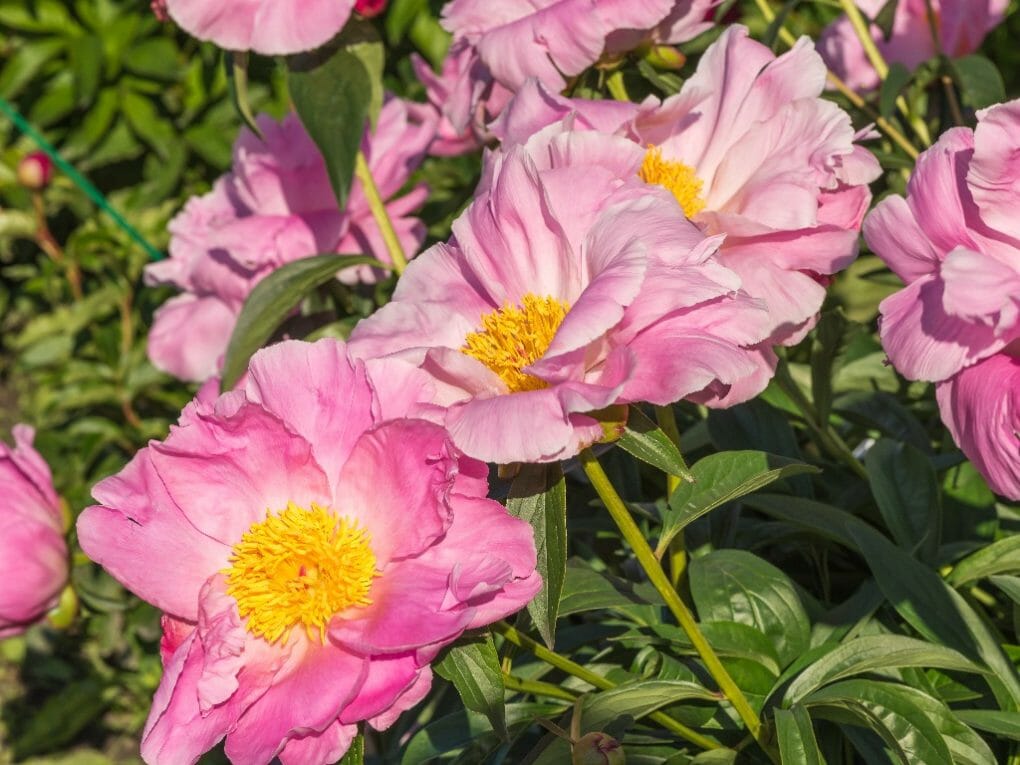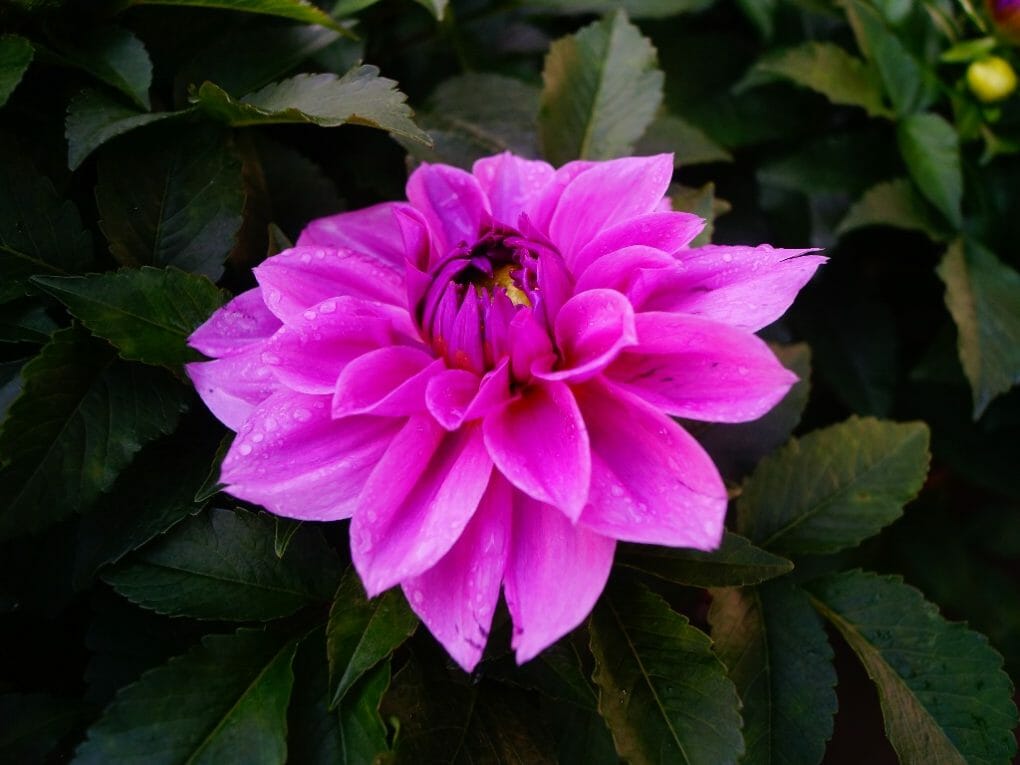Fertilizing Peonies: Great Tips on Giving Nutrients to Your Lovely Peonies

If you’re looking to fertilize your peonies, there are a few different things you should know. Peonies are a type of flower that requires special care when it comes to fertilization. In this article, we’ll explain why fertilizing peonies in the spring is the best time, and give you a step-by-step guide on how to do it. So what are you waiting for? Start fertilizing your peonies today!
Table of Contents
Ideal Fertilizer Formula for Peonies
However, few gardeners actually fertilize their peonies. On the other hand, when replanting peonies, they incorporate compost or bone meal.
Peonies, like many perennial flowers, require a fertile growing medium in order to thrive. For more information on these lovely flowers, consider the following:
5-10-10 fertilizer, which contains 5% nitrogen, 10% phosphorus, and 10% potassium, is ideal for growing peonies. All plants require these basic elements, but peonies have particularly high requirements for the amounts listed. A perennial fertilizer or an organic fertilizer that satisfies the 5-10-10 standard is ideal for your peonies.
Soil with a high clay content is ideal for your peonies.
A standard fertilizer for perennial flowers, such as 10-20-20, with a ratio of 1:2:2, would be beneficial to them.
It is suggested that 1/4 to 1/2 cup of fertilizer be applied to each peony plant. It is also essential to spread the plant food in a circle around the plant, approximately six inches away from the crown.
To create nutrient-rich soil for peonies, combine aged compost, 1/2 cup of general fertilizer, and 1/2 cup of bone meal.
Best Time to Fertilize Your Peonies
The optimal time to fertilize peonies is in early spring, when new shoots are between 2 and 3 inches tall. In late winter or very early spring, you can also prepare the soil by applying approximately three centimeters of compost as mulch.
Peonies thrive in USDA hardiness zones 3 to 9 and prefer cool temperatures.
You should only fertilize or feed your peonies twice during the growing season. When the plant begins to emerge from the soil and its blossoms are about the size of a bean, apply the fertilizer of your choice for the first time. The second feeding of your peonies should occur approximately three months after the first.
Tips for Fertilizing Peony

- Remember to spread fertilizer on the ring a few inches out from the main stem. The roots draw nutrients from the soil into the ring. The plant will suffer from fertilizer burn if it is applied too close to the stem.
- Peonies should not be fertilized in the spring. The flower buds must be about the size of a pea before you can work with them.
- Peonies need to remain in the exact same location as when they were first planted. As a result, they pay close attention to the soil in which they grow. You need to leave them in the same soil for at least two years if you want them to continue flowering.
- During the growing season, you can supplement the soil with bone meal and phosphate to promote healthy root growth and increased flowering.
- Avoid giving your plants too much fertilizer. If your peonies suddenly stop flowering, it’s because you overfertilized them.
- To show your generosity, you can feed your peonies twice. The first is between the months of March and November. The second one is less about producing blooms and more about maintaining healthy roots. Even after you’ve removed the spent blossoms from your peonies with a deadheading shears, you can still give them a feeding.
- Use a fertilizer with a low nitrogen content, and only fertilize your peonies when you plant them and in the middle of their growth.
Peonies Nutrient Uptake and Soil pH
Peonies like slightly acidic soil over neutral soil, just like roses. The best pH range for peonies is between 6.5 and 7.0.
At a lower pH, which means the soil is more acidic, they may not be able to take in the nitrogen, phosphorus, and potassium they need to grow and get strong roots, stems, and leaves.
At a higher pH, which means less alkalinity, they won’t be able to take in phosphorus, which is the most important macronutrient for blooming, iron, which is important for making chlorophyll, and manganese, which affects how well they can handle disease, drought, and stress.
Fertilizers You Can Try On
Organic Fertilizers
Bone Meal
Bone meal, for those who are unfamiliar, is a mixture of finely ground animal bones and other animal waste. The majority of butcher shops stock this item.
Because of the steady supply of phosphorus it provides, bone meal is a popular fertilizer choice. Protein is essential for plant growth, which is also provided by this.
Bone meal is great for fertilizing peonies because it contains a healthy ratio of nitrogen to phosphorus to potassium.
Coffee Grinds
Whether or not used coffee grounds can be used as an organic fertilizer for plants is a topic of much debate. To avoid harming your peonies and other perennial flowers, avoid mixing used coffee grounds into the soil near them. For one thing, azaleas, rhododendrons, daffodils, and many others do best when fertilized with acidic fertilizers, and coffee grounds are far too acidic for them.
Commercial Fertilizers
The following brands of fertilizer meet the criteria:
Lilly Miller Fertilizer 5-10-10
This fertilizer contains many natural ingredients that peonies thrive on, such as bone meal, animal manure, and poultry waste. Due to its extremely pungent odor, it is only suitable for use outdoors. It is marketed primarily as a fertilizer for vegetables, but its NPK ratio makes it an excellent choice for peonies.
Jack’s Traditional Blossom Enhancer

Even though this fertilizer’s 10-30-20 NPK ratio is slightly outside the recommended range for peonies, its low nitrogen content makes it an excellent choice. The increased amount of phosphorus accelerates the flowering of peonies. It is an excellent choice for a variety of flowers, so it has a wide range of applications.
Miracle-Gro Bloom Booster Flowerfood
This versatile fertilizer is simple to apply. Simply combine it with water and water your plants. It works well with all types of flowers, including peonies. It has a 15-30-15 ratio, which is somewhat high in nitrogen, so peonies should be grown with caution. In spite of this, its adaptability and low price make it an excellent choice for many gardeners.
Espoma Organic Flower-Tone
This is the best organic fertilizer for giving your plant the nutrients it needs to produce new shoots and growth. It uses organic materials to nourish the plant, thereby producing beautiful flowers. It is an excellent bulb fertilizer that can be mixed into the planting hole when new bulbs are being planted.
